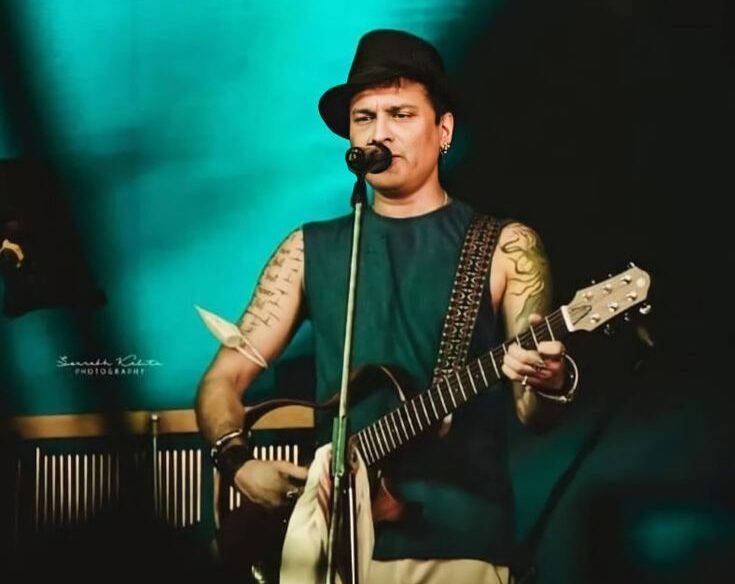Singapore/Assam, Sept 19, 2025 – India’s music fraternity and millions of fans worldwide are in deep shock after the sudden death of Assamese singer, composer, and actor Zubeen Garg, who tragically lost his life following a scuba diving accident in Singapore. He was 52 years old.
Best known nationally for his soul-stirring track “Ya Ali” from the 2006 film Gangster, Garg was more than just a playback singer. To the people of Assam, he was an icon who embodied the cultural heartbeat of the region. His passing marks the end of an era in contemporary Assamese music, while also leaving a void in India’s diverse musical landscape.
The Tragic Incident in Singapore
According to reports from Singapore’s authorities, Garg had traveled to the island nation for a short private vacation. On Wednesday afternoon, he joined a professional diving group near Sentosa for a recreational scuba diving session.
Preliminary investigations suggest that he suffered complications during the dive and lost consciousness while being brought to the surface. Emergency responders rushed him to Singapore General Hospital, where doctors attempted resuscitation, but he was declared dead later in the evening.
Family members, who were accompanying him, are now working with local authorities to complete formalities for the repatriation of his body to India. Assam’s government has already announced full state honors upon his return.
A Voice That Touched Millions
For audiences across India, Zubeen Garg will always be remembered as the man behind “Ya Ali”, a song that not only topped charts but also redefined the soundscape of Bollywood music in the mid-2000s. With its haunting melody and Garg’s powerful, emotional rendition, the track became an anthem for a generation.
But for the people of Assam and the North East, Garg was so much more. He was a cultural ambassador, singing in Assamese, Bengali, and Hindi, while also dabbling in English and other languages. He recorded over 12,000 songs across genres — from folk and devotional to rock and experimental.
His live performances, whether in small towns of Assam or metropolitan arenas, carried the same intensity. Fans recall how Garg often interacted directly with audiences, breaking barriers between artist and listener.
Early Life and Journey to Stardom
Born on November 18, 1972, in Jorhat, Assam, Zubeen Garg was named after the legendary composer Zubin Mehta by his parents, who harbored dreams of their son excelling in the arts. His father was a musician and dramatist, while his mother was a poet — ensuring that creativity flowed through his veins from childhood.
Garg’s early training was in tabla and classical music, but his restless energy soon pushed him toward modern sounds. In the early 1990s, he released his debut Assamese album “Anamika”, which became a massive hit and cemented his status as a rising star in the Northeast.
His big break into Bollywood came with “Ya Ali”. The song not only catapulted him into national fame but also opened doors for more Assamese and Northeastern musicians to dream beyond regional boundaries.
Multifaceted Talent
Zubeen was not limited to singing. He wore many hats with equal ease:
Composer & Lyricist – He composed for Assamese and Bengali films, blending modern beats with folk traditions.
Actor & Filmmaker – Garg acted in Assamese cinema and even directed films, showcasing his deep storytelling instincts.
Philanthropist – He regularly organized charity concerts to support causes ranging from flood relief in Assam to healthcare aid for underprivileged children.
He also spoke fearlessly about issues affecting Assam, often using his platform to raise awareness about environmental conservation, indigenous rights, and cultural preservation.
Reaction to His Death
The news of Garg’s death spread like wildfire across India and abroad, sparking an outpouring of grief.
Prime Minister Narendra Modi expressed shock on social media, calling Garg “a musical genius who gave voice to the soul of Assam and left an indelible mark on Indian music.”
Assam Chief Minister Himanta Biswa Sharma announced that Garg’s body would be flown back with full state honors, describing him as “Assam’s son, whose songs will forever echo in our hearts.”
Bollywood stars including Pritam, Shreya Ghoshal, Vishal Dadlani, and Sunidhi Chauhan mourned his loss, with many recalling the magic of recording alongside him.
Fans across Assam poured into the streets, lighting candles and singing his songs in impromptu gatherings, turning grief into a celebration of his legacy.
The Music That Defined Him
While “Ya Ali” remains his most famous national track, Garg’s repertoire is vast and culturally rich. Some of his most celebrated Assamese songs include “O Mor Apunar Desh,” “Mayabini,” and “Anamika.” His experimentation with fusing Western instruments with Assamese folk rhythms gave his music a distinct identity.
He also lent his voice to devotional albums and patriotic songs, making him a household name in Assam. His versatility meant that one could find him performing bhajans in the morning, a soulful ballad in the evening, and a rock-inspired stage performance by night.
Cultural Legacy in Assam
For the people of Assam, Zubeen was more than a celebrity — he was family. His concerts were not just performances; they were communal gatherings where people found identity, pride, and belonging.
Cultural experts believe his biggest contribution was in modernizing Assamese music while keeping its soul intact. He bridged generations, making folk appealing to the youth without diluting its roots.
He was also deeply involved in Bihu celebrations, festivals, and grassroots cultural events. Despite his national fame, he never distanced himself from his origins, often emphasizing: “I am first an Assamese, then everything else.”
Controversies and Outspokenness
Zubeen Garg was also known for his candid nature. He often made headlines for speaking out against policies he believed were harmful to Assam’s people and environment.
While some criticized his straightforwardness, many admired him for being unapologetically vocal. In a world where artists often avoid political or social stands, Garg remained true to his convictions, cementing his image as both an artist and activist.
Fans Remember Their Hero
On social media, hashtags like #RIPZubeenGarg and #YaAliForever began trending within hours. Fans shared personal stories of how his music touched their lives — from lifting spirits during hardships to soundtracking love stories and festivals.
Many young Assamese musicians credited Garg as their inspiration. “We all grew up with his voice,” one fan remarked. It’s like losing a piece of our youth when we lose him.
Final Journey Home
Arrangements are underway to bring Garg’s body back to Guwahati, where lakhs of fans are expected to pay their last respects. The Assam government has declared a three-day state mourning, with cultural institutions set to organize tribute concerts.
His funeral is likely to be held with traditional Assamese rituals, accompanied by music — the very language he spoke best.
The Irreplaceable Loss
Zubeen Garg’s death is not just the loss of a singer; it is the silencing of a cultural voice that represented resilience, pride, and diversity. At 52, he still had decades of potential creativity left to share with the world.
Yet, his songs ensure that he remains immortal. Each note he sang carries a piece of his soul — from the haunting “Ya Ali” to the vibrant Assamese melodies that continue to inspire.
As the nation mourns, one thing is certain: Zubeen Garg will forever remain the voice of a people, an artist who rose from Assam’s heart and echoed across the world.
Related News: Read More



